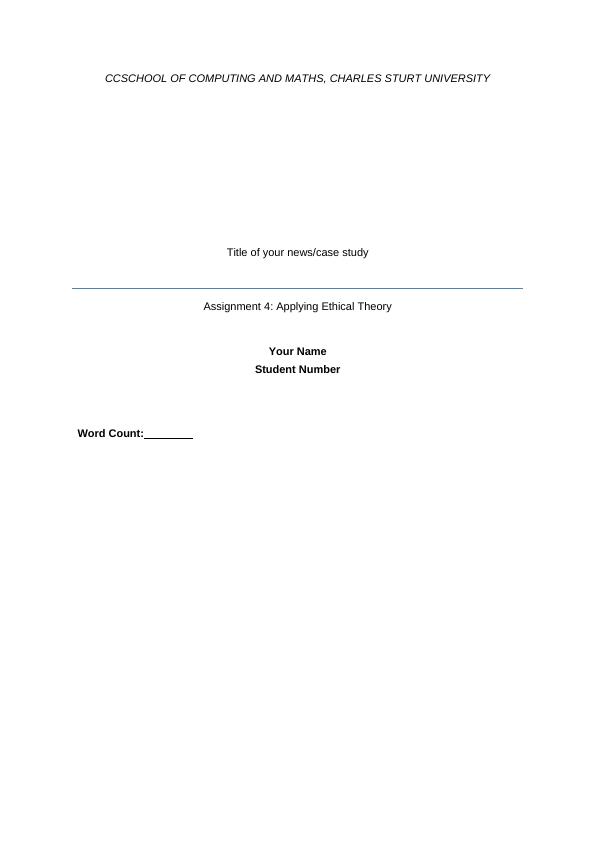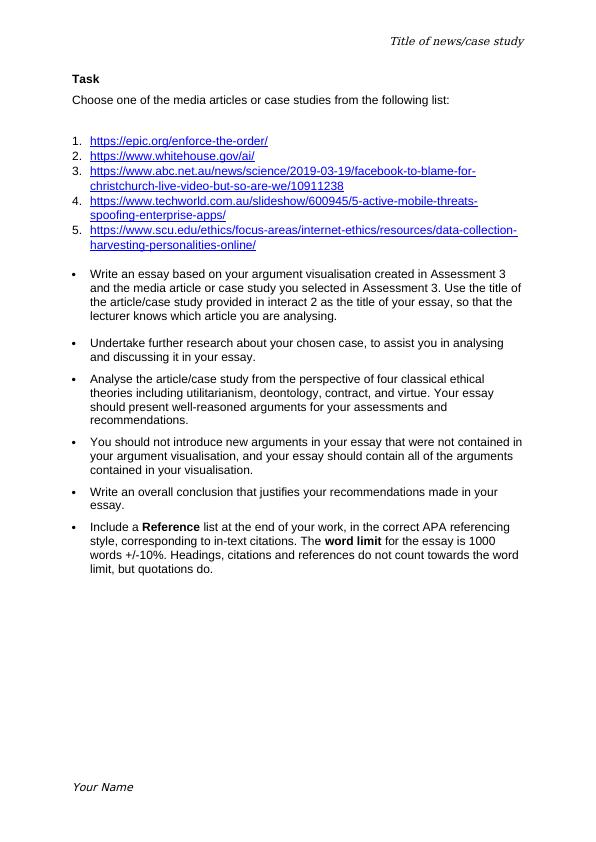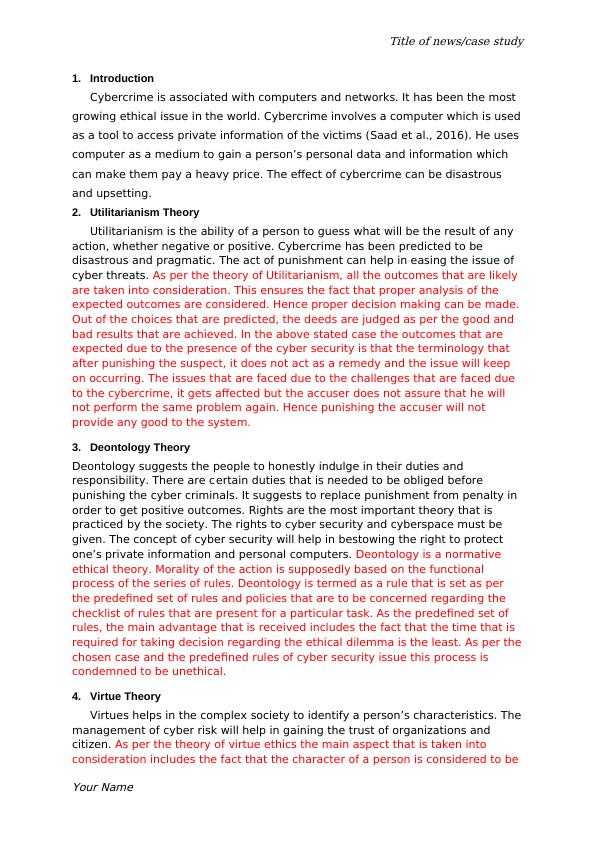Applying Ethical Theory in Cybercrime
7 Pages2167 Words228 Views
Added on 2022-12-15
About This Document
This essay explores the application of ethical theories in analyzing and discussing cybercrime cases. It focuses on the perspectives of utilitarianism, deontology, contract, and virtue ethics. The essay also emphasizes the importance of cyber security measures in mitigating cybercrime.
Applying Ethical Theory in Cybercrime
Added on 2022-12-15
ShareRelated Documents
End of preview
Want to access all the pages? Upload your documents or become a member.
5 Active Mobile Threats Spoofing Enterprise Apps
|6
|2194
|130
Information Technology Ethics: Blame on Social Media for Christchurch Video
|7
|2280
|38
Applying Ethical Theory - PDF
|7
|2438
|92
(Doc) Ethical Theories Essay
|7
|2455
|192
Applying Ethical Theory
|3
|976
|461
AI, Death, and Mourning: Applying Ethical Theory
|6
|2166
|133



